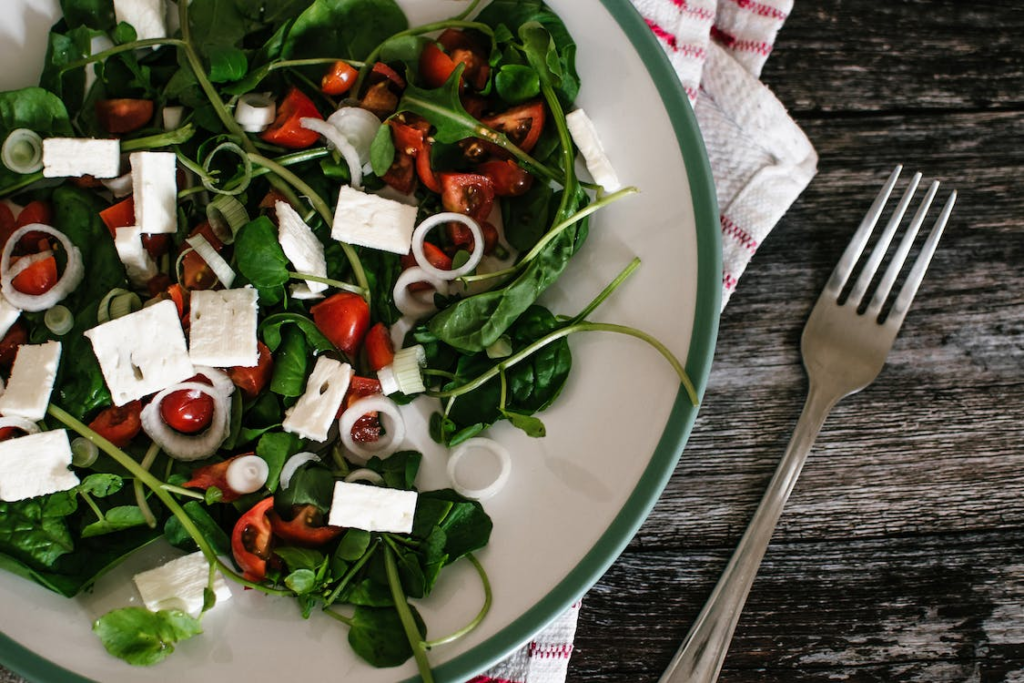The most recent health buzzword that has taken fitness enthusiasts worldwide by storm is “clean eating.” It is an ongoing trend where people are thoughtful and precarious about what they eat and what goes into their bodies in the name of nourishment.
Clean eating is a lifestyle that focuses on including nutrient-dense foods while avoiding processed and refined foods. This eating pattern positively impacts mental health, energy levels, and well-being.
In this ultimate guide to clean eating, we’ll explore the basics of building a clean diet plan, tips for eating clean on a budget, and much more. So get ready to transform your health and feel your best with the power of clean eating!
The Basics of Clean Eating: All You Need To Know About It
This eating pattern is more than just a fad diet. Instead, it is a lifestyle trend for which you will need strong foundations if you seek to continue it long-term. So before diving into the nitty-gritty of clean eating, it’s essential to understand the fundamentals.
Clean eating is a lifestyle focused on consuming whole, minimally processed, and nutrient-dense foods while avoiding processed and refined foods. Here are some of the basics of clean eating:
- Understanding Whole Foods: Whole foods are minimally processed or unprocessed foods free of additives, preservatives, or other artificial substances.
These typically include fruits, vegetables, whole grains, nuts, seeds, and lean proteins. So, for example, instead of reaching for a bag of chips, choose an apple or some baby carrots.
- Importance of Organic and Non-GMO Foods: Organic and non-GMO foods are free of harmful pesticides and chemicals that can negatively impact your health. Choose non-GMO options for foods that are typically genetically modified, such as corn, soybeans, and canola oil.
- Importance of Reading Labels: Many packaged foods contain hidden sugars, unhealthy fats, and artificial ingredients that can harm health. Always read the ingredient list to ensure you consume whole, natural ingredients. Avoid products that contain added sugars, high fructose corn syrup, hydrogenated oils, or artificial flavours and colours.
- Avoiding Processed Foods: Processed foods often have minimal nutritional value and are heavy in calories, sugar, and harmful fats. Examples of processed foods include fast food, chips, candy, and frozen dinners. Instead, choose whole food options such as roasted sweet potatoes, quinoa, or a homemade smoothie.
How to Start Clean Eating as a Beginner?
If you’re new to clean eating, overhauling your diet may seem daunting. But don’t worry, starting clean eating doesn’t have to be complicated. Here are ten helpful and easy tips to get you started:
- Start With Simple Swaps: Replace processed foods with whole foods in your diet, such as swapping sugary cereal for oatmeal or soda for water.
- Choose Lean Proteins And Stay Away From Added Sugar: Opt for lean proteins such as chicken, fish, tofu, or beans to provide your body with essential amino acids. Look for hidden sources of added sugars, such as in sugary drinks, baked goods, and processed foods, and aim to reduce your intake;
- Drink Plenty of Water: Stay hydrated for proper digestion, among many other things.
- Opt For Healthy Meals Delivered To Your Home And Office: Healthy meals delivered straight to your doorstep can make clean eating easy and convenient, eliminating the need for buying groceries, meal prepping, and cooking.
- Plus, these healthy meals delivered are often made with whole, natural ingredients, making it easier to stay on the diet. These meals can be customised to your dietary needs, making sticking to your clean eating goals easier.
- Choose Healthy Snacks: Choose healthy snack options such as fresh fruit, nuts, or veggies with hummus instead of processed snacks like chips or candy.
- Don’t Be Too Hard on Yourself: Starting clean eating is a journey, not a destination. So give yourself grace and celebrate small wins along the way.
Remember that small changes bring significant results over time. And, if you need extra help, consider getting healthy meals delivered to make clean eating even more accessible and convenient.
How Will You Benefit From Clean Eating?
Clean eating isn’t just a passing trend. Instead, it’s a lifestyle that can benefit your physical and mental well-being. Here are some of the ways clean eating can help your body and mind:
- Clean eating can improve digestion and alleviate digestive issues such as bloating, constipation, and gas.
- Consuming whole grains, lean proteins, and fresh fruits and vegetables can give your body the necessary nutrients and energy to function optimally.
- Eating an anti-inflammatory food-rich diet, including items like leafy greens, berries, and fatty fish, helps reduce the body’s inflammation associated with chronic diseases, including cardiovascular ailments, diabetes, and cancer.
- Clean eating improves sleep quality due to the balanced nutrient intake that supports healthy circadian rhythms and hormone production.
- By reducing the consumption of calorie-dense, nutrient-poor foods, clean eating induces weight loss.
- A clean diet rich in vitamins, minerals, and antioxidants can strengthen the immune system.
- Clean eating is good for mental health as it lowers inflammation in the brain and also enhances the production of mood-boosting neurotransmitters like serotonin.
Final Words
Clean eating can be a game-changer for your health, but it’s essential to make informed choices and ensure you’re getting the right nutrients for your body. Consider consulting a dietitian to make the transition to clean eating more accessible. Clean eating is an excellent way to lead a healthier and happier life.
